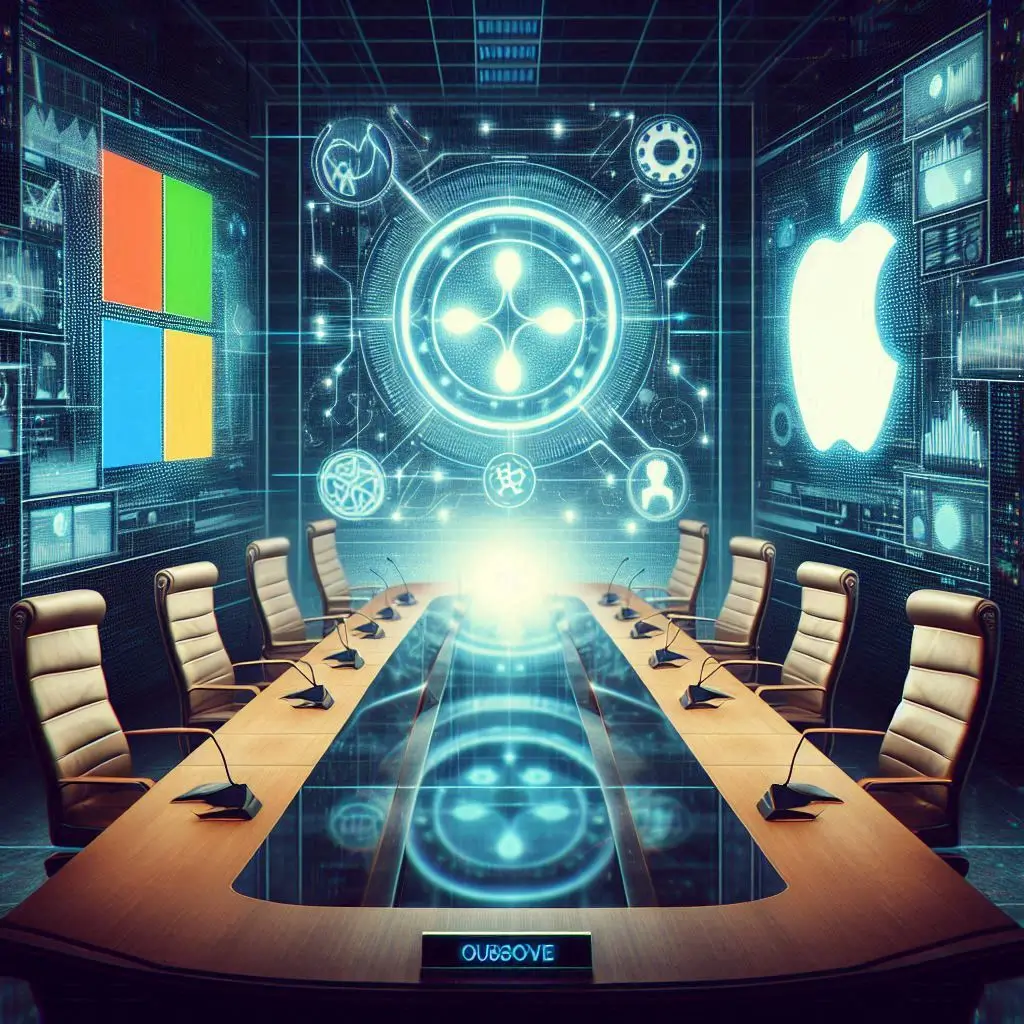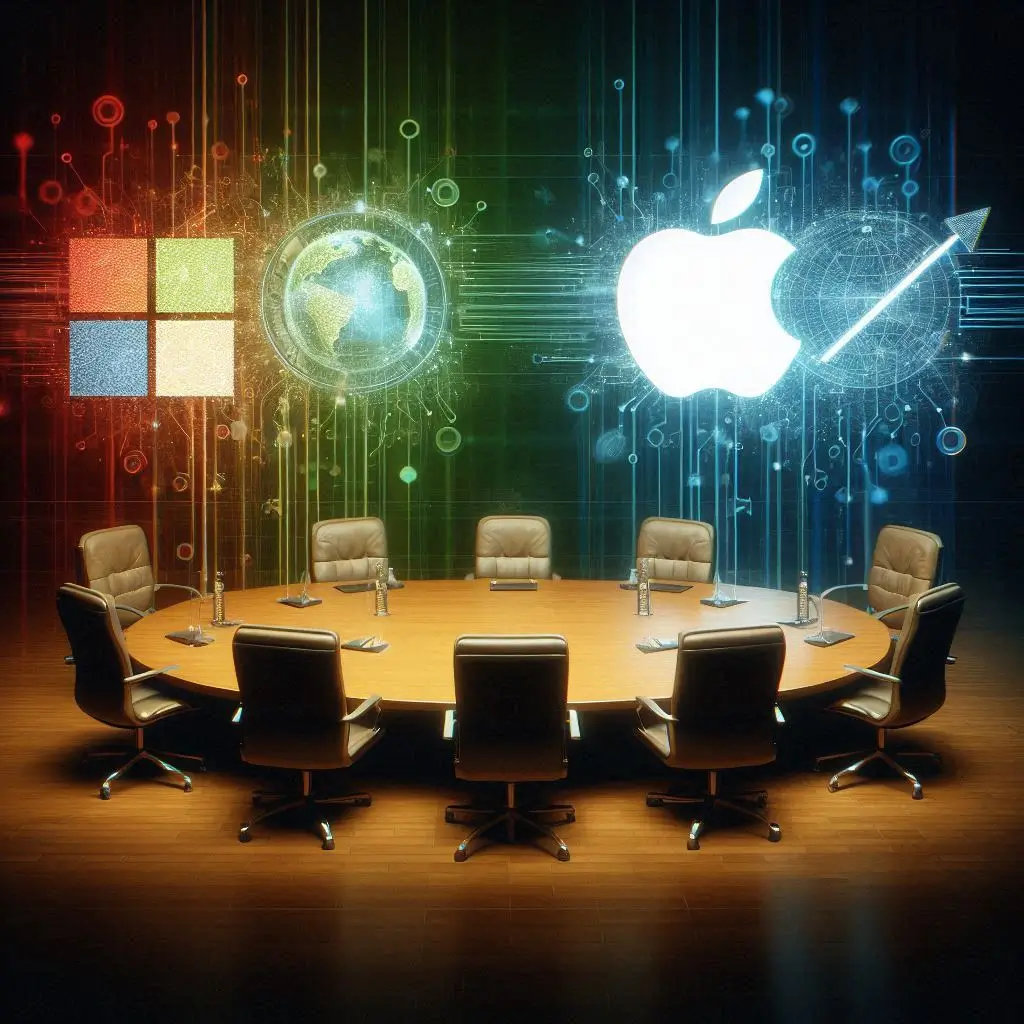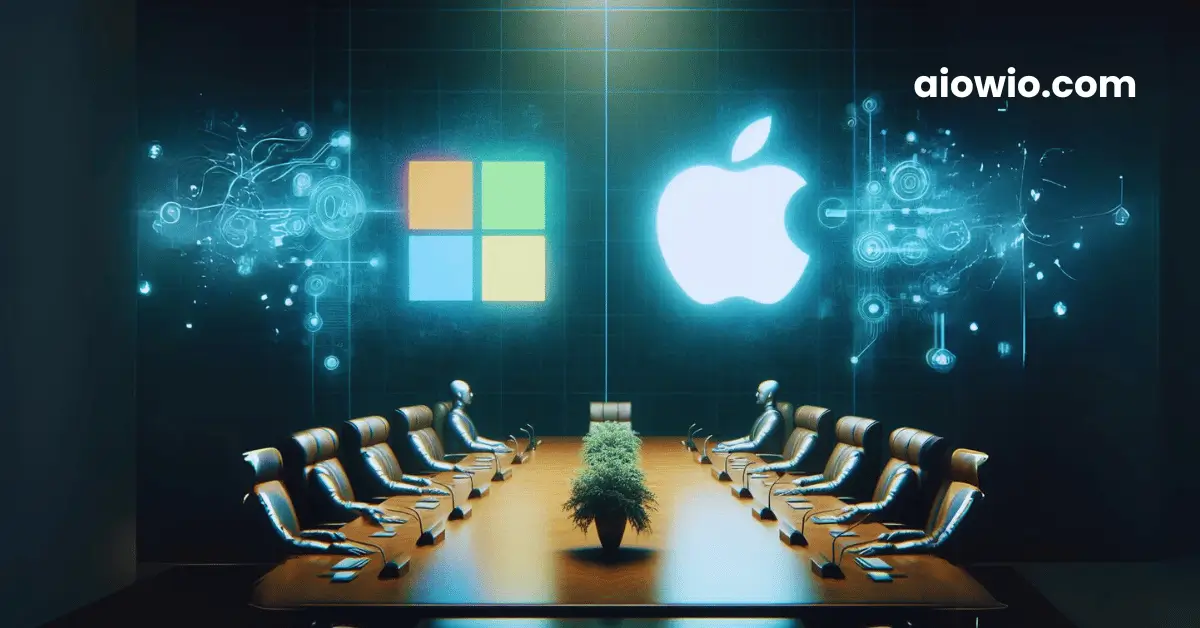Both Microsoft and Apple have chosen to step down from their observer seats on the board of OpenAI, marking a notable shift in the tech industry landscape. This decision, reported by ‘The Financial Times‘, underscores broader shifts and regulatory scrutiny surrounding tech giants’ involvement in artificial intelligence startups.
Microsoft’s Decision and Background
Microsoft, a pivotal investor in OpenAI, notably invested USD 13 billion in its generative AI technology, ChatGPT. Despite this substantial investment, Microsoft has chosen to withdraw from its observer role on OpenAI’s board. The decision was conveyed through a formal letter to OpenAI, where Microsoft expressed satisfaction with the progress achieved under the board’s new leadership.
Apple’s Role and Strategic Adjustment

Similarly, Apple, which had initially planned to take on an observer role as part of its agreement to integrate ChatGPT into its products, has opted not to proceed with this involvement. While Apple has not commented officially on this matter, sources familiar with the situation indicate the tech giant’s decision not to assume an observer position.
Regulatory and Strategic Context
The exits by Microsoft and Apple occur amidst heightened regulatory scrutiny concerning the influence of major tech companies in AI startups. This scrutiny has prompted speculation about whether these decisions are influenced by concerns over antitrust issues or strategic realignments within OpenAI.
OpenAI’s Response and Future Strategy
In response to these developments, OpenAI has announced a revised approach to engaging with its strategic partners and investors. The organization plans to hold regular meetings with key stakeholders, including Microsoft and Apple, alongside major investors like Thrive Capital and Khosla Ventures. According to an OpenAI spokesperson, this shift aims to foster a more inclusive and collaborative approach to governance and decision-making.
Board Dynamics and Personnel Changes

Recent changes within OpenAI’s board, including the appointment and subsequent departure of Apple’s former marketing chief, Phil Schiller, as an observer, highlight the fluidity and potential underlying tensions within the organization’s governance structure.
Analysis and Speculation
Analysts speculate on the motivations behind Microsoft and Apple’s decisions. While some suggest concerns over regulatory scrutiny or strategic disagreements, the exact reasons remain unclear. These developments underscore the complexities of partnerships between tech giants and AI startups in today’s regulatory environment.
Conclusion
The withdrawal of Microsoft and Apple from their observer roles on OpenAI’s board marks a pivotal moment in the evolving relationship between tech giants and AI innovators. As OpenAI navigates these changes, the industry will closely watch how these decisions shape future collaborations and regulatory interactions in the AI sector.

